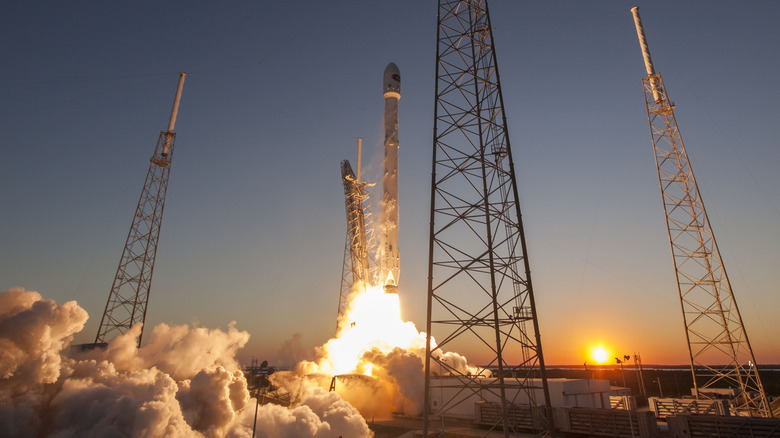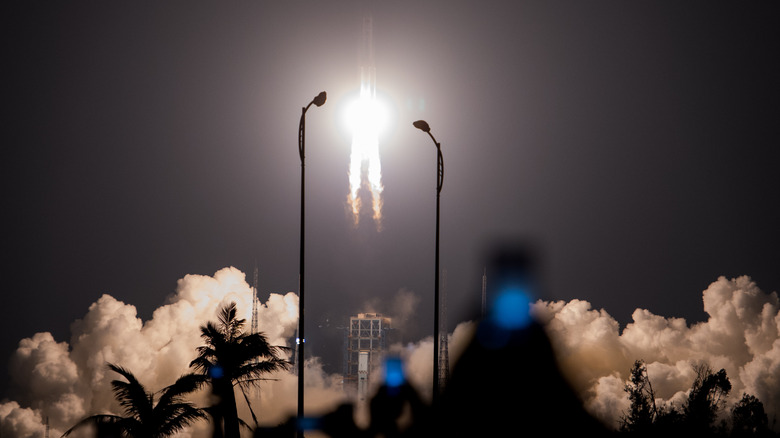Don't Blame SpaceX For The Rocket About To Crash Into The Moon
The moon doesn't know it yet, but it's in line for a high-profile collision with a manmade object come March 4, 2022. At precisely 12:25 UTC on that day, a piece of a rocket that has spent years orbiting Earth is set to crash into the moon's surface, according to Project Pluto.
Astronomers around the globe, along with space fans who keep an eye on the night sky, have speculated that a disconnected piece of the DSCOVR spacecraft was the offending culprit. DSCOVR, an acronym for Deep Space Climate Observatory, is a weather monitoring station launched by the United States in order to provide deep-space weather alerts, monitor space winds, and forecast geomagnetic storms that may impact technology back on Earth (via NASA).
If true, Elon Musk's SpaceX could be to blame, as the DSCOVR mission launched aboard a SpaceX Falcon 9 rocket on February 11, 2015. But it has since turned out not to be the case.
Debris from China's Chang'e 5-T1 is set to hit the moon
The drama began back in 2015 when Project Pluto mistook the object as part of the second phase of the DSCOVR Spacecraft. Online conversation speculated that the object's orbit had it catapulting towards the moon and that SpaceX was at fault for the impending crash on the lunar surface. Project Pluto posted a correction on its site on February 12, stating that it had mistakenly labeled the object set to crash into the moon as part of the DSCOVR mission.
The truth is that SpaceX had nothing to do with the object. An email from NASA's Jet Propulsion Laboratory to Project Pluto pointed out the mislabel and prompted the site to post an update to the original 2015 discussion.
What's orbiting Earth on a doomed trajectory is in fact an object named 2014-065B, the booster of a Chinese Long March C3 rocket used to launch the Chang'e 5-T1 mission (via ScienceAlert). 2014-065B is currently orbiting Earth on a trajectory that will send it into the moon's surface at 12:25 UTC on March 4. The only thing that'll be significantly damaged by this collision will be the rocket, which will likely be destroyed without causing enough of a stir for us Earthlings to notice.

